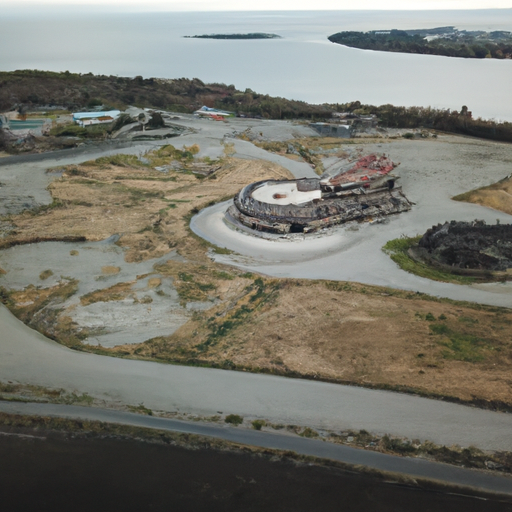 The Gorillawins Casino & Casino Phone Number with Pay By Mobile Phone Bingo, Betit reading with CasinoPhoneBill.com
The Gorillawins Casino & Casino Phone Number with Pay By Mobile Phone Bingo, Betit reading with CasinoPhoneBill.com
Economic Analysis Ireland
-
Casino Phone Bill Slots | Mobile Casino, Bets and Gambling Views
- Introduction
- Exploring the Impact of Brexit on Ireland's Economy
- Examining Ireland's Economic Growth in 2020
- Analyzing the Effects of Tax Reforms on Ireland's Economy
- Assessing the Impact of the Coronavirus Pandemic on Ireland's Economy
- Investigating the Role of Foreign Direct Investment in Ireland's Economic Development
- Evaluating the Impact of Immigration on Ireland's Economy
- Exploring the Impact of Automation on Ireland's Labor Market
- Analyzing the Effects of Government Spending on Ireland's Economy
- Examining the Role of Trade Agreements in Ireland's Economic Development
- Investigating the Impact of Technological Innovation on Ireland's Economy
- Assessing the Impact of Climate Change on Ireland's Economy
- Evaluating the Role of Financial Regulation in Ireland's Economic Stability
- Q&A
- Conclusion
“Unlock the Energy of Economic Analysis in Ireland”
Introduction
Economic Analysis Ireland is a number one supplier of financial analysis and evaluation providers in Ireland. We offer impartial, proof-based mostly advice to private and non-private sector purchasers on a variety of financial points. Our workforce of skilled economists and researchers have experience in macroeconomics, microeconomics, econometrics, public finance, labour economics, and worldwide economics. We're dedicated to offering our purchasers with the best high quality analysis and evaluation to tell their choice-making. Our providers include financial affect assessments, coverage evaluations, price-profit analyses, market research, and more. We attempt to supply our purchasers with essentially the most up-to-date and correct information out there in order to help them make knowledgeable selections.
Exploring the Impression of Brexit on Ireland's Financial system
Because the United Kingdom prepares to go away the European Union, Ireland is bracing itself for the financial affect of Brexit. The Irish economic system is carefully linked to that of the UK, and any adjustments in the UK's buying and selling relationship with the EU might have a major impact on Ireland.
The Irish authorities has estimated that Brexit might price the nation as much as €4.5 billion in misplaced GDP by 2020. This is on account of a mix of things, together with diminished commerce with the UK, increased prices for companies, and a lower in overseas direct funding.
The agri-meals sector is significantly susceptible to Brexit. Round one-third of Irish agri-meals exports go to the UK, and any adjustments in tariffs or laws might have a serious affect on this sector. The Irish authorities has already introduced a €50 million fund to help farmers and meals producers regulate to Brexit.
The Irish tourism industry may be affected by Brexit. The UK is certainly one of Ireland's largest sources of vacationers, and any adjustments in visa necessities or foreign money change charges might have an effect on customer numbers.
The Irish authorities has been making ready for Brexit for the reason that referendum in 2016. It has arrange a devoted unit to coordinate its response, and has been partaking with stakeholders throughout all sectors of the economic system. It has additionally been working carefully with the EU to ensure that Ireland's pursuits are taken into consideration throughout negotiations.
In the end, it is unimaginable to foretell precisely how Brexit will have an effect on Ireland's economic system. Nevertheless, it is clear that there will probably be some vital impacts, and it is important that the Irish authorities continues to organize for them.
Analyzing Ireland's Economic Development in 2020
Ireland's economic system has seen a robust development in 2020, regardless of the challenges posed by the COVID-19 pandemic. In accordance with the Central Statistics Workplace (CSO), Ireland's Gross Home Product (GDP) grew by 7.8% in 2020, the best rate of development since 2000.
The expansion was pushed by a robust efficiency in the providers sector, which noticed a 9.2% enhance in output. This was adopted by a 5.2% enhance in the economic sector and a 4.3% enhance in the development sector.
The Irish economic system additionally benefited from elevated exports, with exports of products and providers rising by 11.3%. This was pushed by robust demand for Irish items and providers from other international locations, significantly in Europe and North America.
The robust financial development has been welcomed by the federal government, who've credited their financial insurance policies for helping to support companies and households throughout the pandemic. The federal government has additionally introduced plans to take a position €7 billion into the economic system over the subsequent three years, with a deal with creating jobs and supporting companies.
Total, Ireland's economic system has seen a robust efficiency in 2020, regardless of the challenges posed by the COVID-19 pandemic. The federal government's financial insurance policies have helped to support companies and households throughout this tough time, and the nation is now properly-positioned to continue its financial development in 2021.
Analyzing the Results of Tax Reforms on Ireland's Financial system
The Irish authorities just lately handed a sequence of tax reforms which have had a major affect on the nation's economic system. The reforms, which had been applied in October 2018, have been designed to make the Irish tax system more aggressive and engaging to overseas traders.
The reforms include a discount in the company tax rate from 12.5% to six.25%, in addition to a discount in the capital positive factors tax rate from 33% to 25%. Moreover, the reforms have eradicated the “double Irish” tax loophole, which allowed firms to pay decrease taxes by routing income by way of Ireland.
The consequences of those reforms have been far-reaching. The company tax rate discount has made Ireland a pretty vacation spot for overseas funding, resulting in an inflow of recent companies and jobs. This has resulted in a rise in financial exercise and development, with GDP rising by 4.2% in 2018.
The reforms have additionally had a constructive impact on the nation's budget deficit. By decreasing the company tax rate, the federal government has been capable of enhance its income with out elevating taxes on people. This has allowed the federal government to scale back its budget deficit from 8.2% of GDP in 2017 to five.7% in 2018.
Total, the tax reforms have had a constructive impact on Ireland's economic system. They've made the nation more engaging to overseas traders, resulting in elevated financial exercise and development. They've additionally helped cut back the budget deficit, permitting the federal government to take a position more in public providers and infrastructure.
Assessing the Impression of the Coronavirus Pandemic on Ireland's Financial system
The coronavirus pandemic has had a devastating affect on Ireland's economic system. The nation has seen a pointy decline in financial exercise, with the Central Statistics Workplace (CSO) estimating that the economic system contracted by 7.8% in 2020. This is the biggest annual decline since information started in 1960.
The pandemic has had a very extreme affect on the hospitality and tourism sectors, which have been hit arduous by journey restrictions and lockdowns. The CSO estimates that the lodging and meals providers sector declined by 64.3% in 2020, whereas the transport and storage sector declined by 33.2%.
The pandemic has additionally had a major affect on employment. The unemployment rate rose to six.9% in December 2020, up from 4.8% in December 2019. This is the best rate since Could 2011.
The Irish authorities has responded to the disaster with a spread of measures, together with wage subsidies, tax deferrals, and mortgage ensures. These measures have helped to cushion the blow of the pandemic, nevertheless it is clear that the financial restoration will probably be sluggish and uneven.
The Irish authorities has additionally launched a number of initiatives to support companies and employees affected by the pandemic. These include the Pandemic Unemployment Cost, which gives monetary support to those that have misplaced their jobs because of the pandemic, and the Employment Wage Subsidy Scheme, which gives monetary support to employers who're struggling on account of diminished demand for his or her providers.
It is clear that the coronavirus pandemic has had a devastating affect on Ireland's economic system. The total extent of the injury is but to be seen, nevertheless it is clear that it's going to take a while for the economic system to get better from this disaster.
Investigating the Position of International Direct Funding in Ireland's Economic Improvement
Ireland has lengthy been referred to as a rustic of nice financial potential, and overseas direct funding (FDI) has performed a serious function in its improvement. FDI is outlined as an funding made by an organization or particular person from one nation into one other, and it can take many varieties, together with establishing a enterprise, shopping for property, or investing in the inventory market.
In recent times, Ireland has turn into more and more engaging to overseas traders on account of its low company tax rate and its extremely educated workforce. This has led to a surge in FDI, with the nation receiving more than €20 billion in 2018 alone.
The affect of FDI on Ireland's economic system has been vital. It has created 1000's of jobs, boosted wages, and elevated the nation's GDP. It has additionally helped to draw more worldwide firms to the nation, which has led to elevated competitors and improved the standard of products and providers out there to customers.
FDI has additionally had a constructive impact on Ireland's infrastructure. International traders have invested closely in the nation's roads, railways, and airports, making it simpler for folks to journey across the nation and do enterprise. This has had a knock-on impact on other sectors of the economic system, akin to tourism and retail.
Total, FDI has been an essential issue in Ireland's financial improvement. It has created jobs, elevated wages, and improved infrastructure. It has additionally attracted more worldwide firms to the nation, which has helped to spice up competitors and enhance the standard of products and providers out there to customers.
Evaluating the Impression of Immigration on Ireland's Financial system
Immigration has had a major affect on Ireland's economic system in current years. In accordance with the Central Statistics Workplace, the number of non-Irish nationals residing in Ireland elevated by nearly 50% between 2011 and 2016. This inflow of immigrants has had a constructive impact on the Irish economic system, contributing to financial development and job creation.
Immigrants have offered a much-wanted enhance to the Irish labor pressure. The inflow of overseas employees has helped to fill labor shortages in certain sectors, akin to building and hospitality. This has allowed companies to increase and create more jobs, helping to drive financial development. Immigrants have additionally helped to scale back wage pressures, as they're typically prepared to work for decrease wages than native Irish employees.
Immigrants have additionally contributed to the Irish economic system by way of their spending energy. Immigrants are likely to spend more than native Irish residents, as they typically ship money again residence or make investments in companies in their residence international locations. This elevated spending has helped to stimulate financial exercise and create jobs.
Immigrants have additionally helped to extend tax revenues for the Irish authorities. As immigrants have a tendency to be youthful than native Irish residents, they're more doubtless to be in employment and paying taxes. This has helped to extend authorities revenues, which can then be used for public providers akin to healthcare and training.
Total, immigration has had a constructive affect on Ireland's economic system. It has helped to fill labor shortages, stimulate financial exercise, and enhance authorities revenues. Whereas there are some challenges related to immigration, akin to offering sufficient housing and providers for immigrants, the general affect has been constructive.
Exploring the Impression of Automation on Ireland's Labor Market
The automation of labor is having a profound affect on Ireland's labor market. As know-how advances, more and more jobs are being changed by machines, resulting in a lower in the number of obtainable jobs for human employees. This shift is having a major impact on the Irish economic system, with many employees struggling to find employment.
The obvious affect of automation is the displacement of employees. As machines turn into more and more able to performing duties that had been as soon as executed by people, fewer persons are wanted to do these jobs. This has led to a lower in the number of obtainable jobs in Ireland, in addition to a rise in unemployment. As well as, those that are capable of find work typically find themselves in decrease-paying positions than that they had earlier than automation took over.
The affect of automation is additionally being felt in other areas of the labor market. For instance, many employers at the moment are counting on automated systems to deal with recruitment and hiring processes. This has led to a lower in the number of human resources personnel wanted to handle these processes, ensuing in fewer job alternatives for these looking for employment in this area.
Automation has additionally had an impact on wages. As machines turn into more environment friendly at performing certain duties, employers are capable of cut back their labor prices by changing human employees with machines. This has led to a lower in wages for a lot of employees, as employers are capable of pay much less for a similar quantity of labor.
Lastly, automation has had an impact on job security. As machines turn into more and more able to performing duties that had been as soon as executed by people, employers are much less more likely to hold staff on employees for lengthy durations of time. This has led to a rise in job insecurity amongst Irish employees, as they're much less doubtless to be capable of depend on their present job for lengthy-time period stability.
Total, automation is having a major affect on Ireland's labor market. Whereas it has led to some price financial savings for employers, it has additionally resulted in fewer job alternatives and decrease wages for a lot of employees. As know-how continues to advance, it is doubtless that these results will solely turn into more pronounced in the longer term.
Analyzing the Results of Authorities Spending on Ireland's Financial system
The Irish economic system has been significantly affected by authorities spending in current years. With a view to perceive the affect of presidency spending on the Irish economic system, it is essential to have a look at the historical past of presidency spending in Ireland.
Because the mid-Nineteen Nineties, the Irish authorities has been rising its spending on public providers and infrastructure. This has been executed in an effort to stimulate financial development and create jobs. As well as, the federal government has additionally elevated its spending on social welfare applications, akin to unemployment advantages and housing help.
The elevated authorities spending has had a constructive impact on the Irish economic system. It has helped to create jobs and stimulate financial development. The elevated spending has additionally helped to scale back poverty ranges in Ireland, in addition to enhance entry to well being care and training.
Nevertheless, there have additionally been some adverse results of elevated authorities spending in Ireland. For instance, elevated authorities spending has led to increased taxes for residents and companies. This has made it more tough for companies to take a position in Ireland and has led to slower financial development. As well as, elevated authorities spending has led to increased ranges of public debt, which can be a burden on future generations.
Total, it is clear that elevated authorities spending in Ireland has had each constructive and adverse results on the economic system. Whereas it has helped to create jobs and stimulate financial development, it has additionally led to increased taxes and public debt ranges. It is essential for the Irish authorities to continue to observe its spending in order to ensure that it is having a constructive impact on the economic system.
Analyzing the Position of Commerce Agreements in Ireland's Economic Improvement
Ireland has lengthy been a nation that has relied closely on commerce agreements to gasoline its financial improvement. In recent times, the nation has signed a number of commerce agreements with the European Union, the United States, and other international locations across the world. These agreements have helped to open up new markets for Irish exports, whereas additionally offering entry to overseas markets for Irish companies.
The European Union is Ireland's largest buying and selling associate, accounting for over 60% of all exports. As a member of the EU, Ireland has entry to the only market, which permits items and providers to maneuver freely between member states. This has enabled Irish companies to make the most of the economies of scale that include being half of a bigger market. Moreover, the EU's Widespread Agricultural Coverage has offered Irish farmers with subsidies and other support measures which have helped them stay aggressive in the global market.
The United States is one other essential buying and selling associate for Ireland. The US-Ireland Commerce and Funding Partnership (TIP) was signed in 2015 and has since opened up new alternatives for Irish companies in the US market. The settlement gives preferential entry to US markets for certain Irish merchandise, akin to dairy and beef merchandise, in addition to permitting for elevated funding in Ireland from US firms.
Along with these two main buying and selling companions, Ireland has additionally signed a number of free commerce agreements with other international locations across the world. These agreements have allowed Irish companies to increase their attain into new markets and have helped to diversify their export portfolio. For instance, Ireland has signed free commerce agreements with Canada, Japan, South Korea, and Mexico, amongst others.
Total, commerce agreements have performed an essential function in Ireland's financial improvement. By offering entry to new markets and elevated funding alternatives, these agreements have helped to create jobs and spur financial development in the nation. As Ireland continues to pursue new commerce offers with other international locations across the world, it is doubtless that these agreements will continue to be an essential a part of its financial improvement technique.
Investigating the Impression of Technological Innovation on Ireland's Financial system
In recent times, technological innovation has had a major affect on Ireland's economic system. From the event of recent services and products to the introduction of recent ways of doing enterprise, know-how has been a serious driver of financial development in the nation.
The Irish authorities has taken steps to encourage technological innovation, investing in analysis and improvement, offering tax incentives for firms that make investments in know-how, and making a supportive surroundings for entrepreneurs. This has resulted in a surge of recent companies and startups, a lot of that are centered on growing progressive applied sciences.
One instance of this is the rise of the FinTech sector in Ireland. FinTech firms are utilizing know-how to revolutionize the way in which monetary providers are delivered, from online banking to digital funds. This has created 1000's of jobs and generated billions of euros in income for the Irish economic system.
The tech sector has additionally been a serious contributor to job creation in Ireland. The number of individuals employed in the tech sector has grown by over 40% since 2015, with over 200,000 folks now employed in the sector. This has had a constructive affect on wages and residing standards throughout the nation.
The event of recent applied sciences has additionally had an affect on other sectors of the economic system. For instance, advances in synthetic intelligence and machine studying have enabled firms to automate processes and cut back prices, resulting in elevated productiveness and profitability.
Lastly, technological innovation has additionally had an affect on Ireland's worldwide status. The nation is now seen as a hub for innovation and entrepreneurship, attracting funding from across the world. This has helped to spice up overseas direct funding into Ireland, creating jobs and stimulating financial development.
Total, it is clear that technological innovation has had a constructive affect on Ireland's economic system. The nation is now seen as a pacesetter in innovation and entrepreneurship, creating jobs and driving financial development.
Assessing the Impression of Local weather Change on Ireland's Financial system
Ireland is going through a rising risk from local weather change, with the potential to trigger vital financial injury. The nation is already experiencing more excessive climate occasions, akin to floods and storms, which can have a devastating affect on companies and communities. As well as, rising sea ranges and temperatures are more likely to trigger additional disruption to the economic system.
The Irish authorities has recognized local weather change as a serious risk to the nation's financial development. A current report from the Division of Local weather Motion and Surroundings discovered that the price of local weather change might attain €2.2 billion by 2050. This consists of prices related to injury to infrastructure, well being impacts, and disruption to companies.
The agricultural sector is significantly susceptible to the consequences of local weather change. Rising temperatures and adjustments in rainfall patterns might result in diminished crop yields and elevated prices for farmers. This might have a knock-on impact on meals costs, in addition to on rural communities that depend on farming for his or her livelihoods.
The tourism industry is additionally at risk from local weather change. Hotter temperatures might result in a rise in the number of vacationers visiting Ireland, however this could possibly be offset by excessive climate occasions akin to floods or storms, which might disrupt journey plans and cut back customer numbers.
The Irish authorities has taken steps to handle the specter of local weather change, together with introducing a carbon tax and investing in renewable power sources. Nevertheless, more needs to be executed if Ireland is to guard its economic system from the impacts of local weather change.
Evaluating the Position of Monetary Regulation in Ireland's Economic Stability
The Irish economic system has been a source of global admiration in current years, with its fast development and low unemployment rate. Nevertheless, this success has been largely attributed to the nation's monetary regulation system, which has been credited with helping to ensure financial stability.
Monetary regulation in Ireland is overseen by the Central Financial institution of Ireland, which is responsible for setting and imposing laws that shield customers and ensure the steadiness of the monetary system. This consists of setting capital necessities for banks, monitoring credit score risk, and regulating the insurance coverage sector.
The Central Financial institution additionally performs an essential function in stopping monetary crises by monitoring the banking sector and intervening when essential. For instance, in 2008, the Central Financial institution took motion to forestall a banking disaster by introducing a deposit assure scheme and offering liquidity support to banks. This helped to ensure that the Irish banking system remained steady throughout the global monetary disaster.
Along with these measures, the Central Financial institution additionally works to advertise competitors in the monetary sector by encouraging new entrants into the market and guaranteeing that current players will not be making the most of their place. This helps to ensure that customers have entry to a variety of services and products at aggressive costs.
Total, it is clear that monetary regulation has performed an essential function in helping to ensure financial stability in Ireland. By setting and imposing laws that shield customers and promote competitors, the Central Financial institution has helped to create an surroundings the place companies can thrive and customers can entry the services and products they want. This has been instrumental in helping Ireland obtain its present stage of financial success.
Q&A
1. What is Economic Analysis Ireland?
Economic Analysis Ireland (EAI) is an impartial analysis and consulting agency that gives financial evaluation and advice to the private and non-private sectors in Ireland. EAI's providers include financial forecasting, coverage evaluation, financial affect evaluation, and financial modelling.
2. What type of providers does Economic Analysis Ireland present?
EAI gives a spread of providers together with financial forecasting, coverage evaluation, financial affect evaluation, and financial modelling. We additionally present advice on a spread of matters akin to taxation, public expenditure, labour markets, housing markets, power markets, and the surroundings.
3. How does Economic Analysis Ireland help the general public sector?
EAI helps the general public sector by offering proof-based mostly evaluation and advice on a spread of matters. This helps inform choice-making and ensure that insurance policies are based mostly on sound proof. We additionally present financial affect assessments to help perceive the potential impacts of proposed insurance policies or tasks.
4. How does Economic Analysis Ireland help the personal sector?
EAI helps the personal sector by offering proof-based mostly evaluation and advice on a spread of matters. This helps inform choice-making and ensure that methods are based mostly on sound proof. We additionally present financial modelling to help perceive the potential impacts of proposed methods or tasks.
5. What type of analysis does Economic Analysis Ireland conduct?
EAI conducts analysis on a spread of matters associated to the Irish economic system akin to taxation, public expenditure, labour markets, housing markets, power markets, and the surroundings. Our analysis is based mostly on rigorous financial evaluation and is designed to tell choice-making in each the private and non-private sectors.
6. How does Economic Analysis Ireland use information?
EAI makes use of information from a wide range of sources together with official authorities statistics, surveys, reviews from other organisations, and our personal main analysis. We use this information to conduct rigorous financial evaluation which helps inform choice-making in each the private and non-private sectors.
7. What type of financial fashions does Economic Analysis Ireland use?
EAI makes use of a wide range of financial fashions together with econometric fashions, enter-output fashions, macroeconomic fashions, and microeconomic fashions. These fashions are used to analyse information and perceive the potential impacts of proposed insurance policies or tasks.
8. How does Economic Analysis Ireland ensure accuracy in its analysis?
EAI takes nice care to ensure accuracy in our analysis through the use of rigorous strategies akin to peer review and high quality assurance processes. We additionally use a wide range of information sources to ensure that our outcomes are based mostly on dependable proof.
9. What is the scope of Economic Analysis Ireland's work?
EAI's work covers a variety of matters associated to the Irish economic system akin to taxation, public expenditure, labour markets, housing markets, power markets, and the surroundings. We additionally present advice on a spread of worldwide points akin to Brexit and globalisation.
10. How can I entry Economic Analysis Ireland's analysis?
EAI's analysis is out there online by way of our website or by way of our publications which can be bought from our online retailer or by way of booksellers akin to Amazon or Waterstones.
11. Does Economic Analysis Ireland offer coaching programs?
Sure, EAI offers a spread of coaching programs which cowl matters akin to financial forecasting, coverage evaluation, financial modelling, and information evaluation. These programs are designed for professionals who wish to acquire an understanding of those matters or develop their expertise in these areas.
12. Does Economic Analysis Ireland offer consultancy providers?
Sure, EAI offers consultancy providers which cowl matters akin to financial forecasting, coverage evaluation, financial modelling, and information evaluation. Our consultants have intensive experience in these areas and can present tailor-made advice to fulfill your particular needs.
Conclusion
Economic Analysis Ireland has offered a complete overview of the Irish economic system, highlighting the important thing drivers of development and the challenges that the nation faces. It has additionally highlighted the significance of fiscal and financial coverage in driving financial development and stability. The evaluation has proven that Ireland is properly-positioned to profit from global financial traits, however should stay vigilant in order to ensure that its economic system stays aggressive and resilient. With the precise insurance policies in place, Ireland can continue to be a pacesetter in the global economic system.























